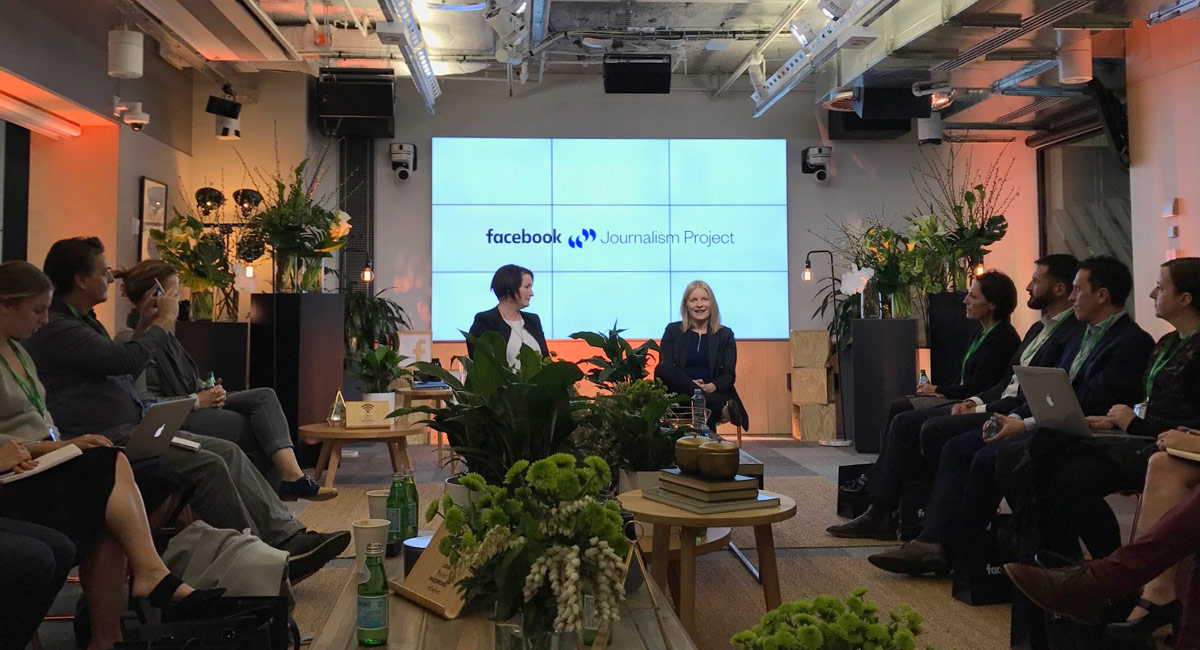Facebook yesterday hosted an intimate gathering with its head of global journalism partnerships Áine Kerr and members of the media at its Sydney office on King Street. Kerr took the opportunity to talk about what the platform is offering publishers in Australia while taking feedback from attendees.
Unsurprisingly, Kerr also spent time discussing Facebook’s approach to combating fake news. One point she made clear was that the platform does not want to be the judge of what is ‘true’. She continued to outline their “three-pronged approach”.
1) “How do we disrupt the financial incentive associated with false news? We know a lot of this content is financially motivated. There’s been a huge amount work to use technology, machine learning and more to detect and remove fake accounts and make it difficult for them to advertise on the platform.
2) “How do we build products that will reduce the sharing of false news? That has meant looking at things like signals on news feeds. If a lot of people are clicking into an article and not sharing it, that could be a signal that it’s either sensationalist, a hoax, a piece of misinformation or spam. There have been hundreds and thousands of low-quality pages like that that have been reviewed.
“The third approach is about education and news literacy.”
When asked why it doesn’t use third-party fact checking agencies in Australia to ensure the news results served on Facebook are true and accurate, Kerr replied:
“Everything that we are trialling and testing elsewhere, Australia gets the learnings from them.” There are no immediate plans to involved third-party organisations to fact-check news on Facebook in Australia yet.
She did reveal that trial with third-party fact-checking agencies are currently being conducted in the US, Netherlands and France.
Kerr also took the opportunity to speak about Facebook’s Instant Articles, as well as increasing the prominence of a publisher’s logo next to its articles in the trending section and searches.
“With search and trends, your logos will be much clearer [so that the user knows] that this is from The Australian or The Sydney Morning Herald or the local paper. People will click on it and remember that it was a piece from my trusted local newspaper or national broadcaster.”
Facebook is also trialling branded content on Instant Articles, as well as advertising on video content. The social media platform is seeking to give publishers more control over their product on the platform.
